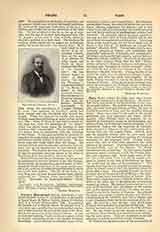

Feyjoo y Montenegro, BENITO JERONIMO, a celebrated Spanish writer, b. at Casdemiro, in the parish of Santa Maria de Melias, Galicia, Spain, October 8, 1676; d. at Oviedo, September 26, 1764. Intended by his parents for a literary career, he showed from a very early age a predilection for ecclesiastical studies, and in 1688 received the cowl of the Order of St. Benedict at the monastery of San Juan de Samos. A man of profound learning, Feyjoo wrote on a great variety of subjects, embracing nearly every branch of human knowledge. In his writings he attacked many old institutions, customs, and superstitions. He criticized, among other things, the system of public instruction in Spain, offering suggestions for reforms; and it was owing to his agitation that many universities adopted new and better methods of teaching logic, physics, and medicine. He naturally stirred up many controversies and was the object of bitter attacks, but he was not without his supporters and defenders. In his long life he wrote many works, the full list of which may be found in Vol. LVI of “La Biblioteca de Autores Espanoles” (Madrid, 1883). The subjects may be conveniently grouped as follows: arts; astronomy and geography; economics; philosophy and metaphysics; philology; mathematics and physics; natural history; literature; history; medicine. Nearly all are included in the eight volumes which bear the title “Teatro critico universal o discursos varios en todo genero de materias para desengano de errores comunes” (Madrid, 1726-39) and in the five volumes of his “Cartas Eruditas” (Madrid, 1742-60). During the life of the author his works were translated into French, Italian, German, and after his death into English. At his death Feyjoo was laid to rest in the church of San Vicente at Oviedo. A fine statue in his memory ornaments the entrance to the National Library at Madrid.
VENTURA FUENTES

